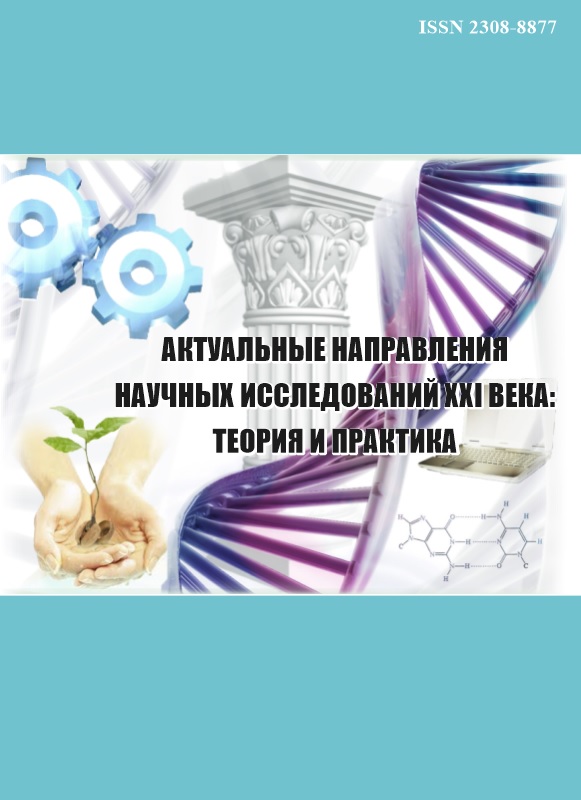Russian Federation
new industrialization in the car industry and transport, based on the principles of “green economy”, actualizes the development of the waste motor recycling industry. Car recycling tax is aimed to accumulate the necessary financial resources for this goal. However, in Russia it performs untypical for this payment functions: protective and environmental on the stage of the car operation, but not on the stage of the recycling. The gap between the volumes of incoming car recycling tax and subsidizing the cost of car recycling is growing annually. It demonstrates the dysfunction of this payment as a fillip and financial source for the development of car recycling industry.
car recycling tax, new industrialization, recycling, waste motor, gap, function, dysfunction.
УДК (002.8) 330.341.424
ДИСФУНКЦИИ УТИЛИЗАЦИОННОГО СБОРА КАК ИСТОЧНИКА ФИНАНСИРОВАНИЯ ИНДУСТРИИ РЕЦИКЛИГА В РОССИИ
DYSFUNCTIONS OF THE CAR RECYCLING TAX AS A SOURCE OF FUNDING IN THE RECYCLING INDUSTRY IN RUSSIA
Кормишкина Л.А., д.э.н., профессор
Королева Л.П., к.э.н., доцент
ФГБОУ ВПО «Мордовский государственный университет
имени Н.П.Огарева», г. Саранск, Россия
DOI: 10.12737/16107
Аннотация: новая индустриализация в автомобилестроении и на транспорте на основе принципов «зеленой экономики» актуализирует развитие индустрии рециркуляции автотранспортных отходов. Утилизационный сбор призван аккумулировать необходимые для этого финансовые ресурсы. Однако в России он выполняет нехарактерные для данного платежа функции: протекционистскую и экологическую на этапе эксплуатации автомобиля, а не утилизации. Ежегодно увеличивается разрыв между объемами поступающего утилизационного сбора и субсидирования расходов на утилизацию транспортных средств, который демонстрирует дисфункцию платежа как стимула и финансового источника развития индустрии авторециклинга.
Summary: new industrialization in the car industry and transport, based on the principles of “green economy”, actualizes the development of the waste motor recycling industry. Car recycling tax is aimed to accumulate the necessary financial resources for this goal. However, in Russia it performs untypical for this payment functions: protective and environmental on the stage of the car operation, but not on the stage of the recycling. The gap between the volumes of incoming car recycling tax and subsidizing the cost of car recycling is growing annually. It demonstrates the dysfunction of this payment as a fillip and financial source for the development of car recycling industry.
Ключевые слова: утилизационный сбор, новая индустриализация, рециклинг, автотранспортные отходы, разрыв, функция, дисфункция
Keywords: car recycling tax, new industrialization, recycling, waste motor, gap, function, dysfunction.
1. Gubanov S.S. Novaya industrializatsiya i sektor retsiklinga. Ekonomist. - 2014. - №12. - S.3-11
2. BIR. Recycled Materials Supply 40% of the Global Raw Material Needs. 2015. Available at: http://www.bir.org/industry/ Schneider J., Karigl B., Neubauer C., Tesar M., Oliva J., Read B. End of life vehicles: Legal aspects, national practices and recommendations for future successful approach. Brussels, October 2010. Pages 74 Available at: http://ec.europa.eu/environment/waste/pdf/study/elv.pdf
3. Kormishkina L.A., Koroleva L.P. Fiskal´noe regulirovanie retsiklinga avtotransportnykh otkhodov pri perekhode k neoindustrial´nomu razvitiyu. Nalogi i nalogooblozhenie. - 2015. - № 7. - S. 510 - 527. DOI:https://doi.org/10.7256/1812-8688.2015.7.15717
4. Kadochnikov P.A., Ptashkina M.G. Spory Rossii v VTO: vozmozhnye argumenty v pol´zu progressivnosti utilizatsionnogo sbora. Rossiyskiy vneshneekonomicheskiy vestnik. - 2014. - № 6. - S. 3-14.










